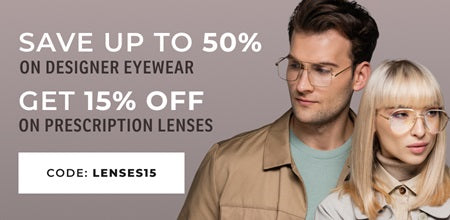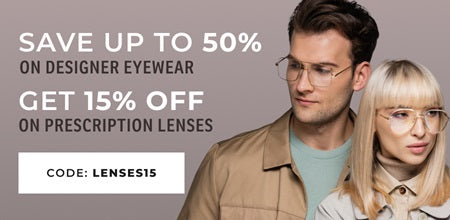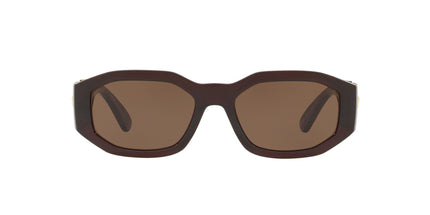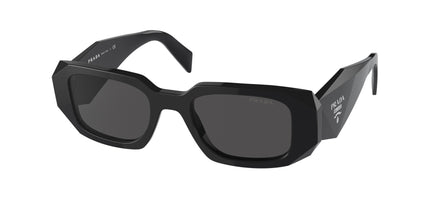Zeaxanthin: How’s It Good For Your Vision?

Wearing eyeglasses isn’t an ideal situation for everyone. While glasses protect your vision from damaging further, having them perched on your nose all day can irritate many. Plus, it completely alters your lifestyle to support your vision - truly a never-ending process.
But all these problems come with solutions, too. Varying from eye exercises to supplements, there are a number of ways (backed by scientific evidence) that can be incorporated into your daily routine to take care of your eyes.
Out of all these options, the best one remains using antioxidants. This effective strategy works wonders for your eye health. Let’s talk about how the zeaxanthin antioxidant will keep your vision healthy and how you can increase its intake.
Zeaxanthin: What Is It?
Did you know that the human eyes contain 3 different carotenoids that operate our vision and reduce the risk of eye diseases? These 3 carotenoids are:
- Zeaxanthin
- Meso-zeaxanthin
- Lutein
Lutein and zeaxanthin can be found in the retina’s peripheral areas and the direct center. This fat-soluble pair of antioxidants make the foundation of the eye’s macular pigment.
This pigment protects the eyes from damage caused by harsh blue light. However, out of the two of them, zeaxanthin is more effective.
How Will Zeaxanthing Improve Your Vision?
Zeaxanthin is linked to our vision. So, how will it affect the body when it is absorbed?
1. Reduces Risk of Eye Diseases
Eye diseases are fear and worry of every individual. After all, no one wants their vision affected or impaired. Fortunately, there are multiple methods available that can reduce the risk of falling prey to eye diseases.
One of these methods is consuming foods that contain high amounts of zeaxanthin and other vital antioxidants. According to multiple studies, people who ate foods high in zeaxanthin had 50% fewer chances of developing cataracts than others. Other conditions that foods high in zeaxanthin can prevent include uveitis, age-based macular degeneration, and diabetic rhinopathy.
2. Light Protection
Harsh blue light and UV rays are present everywhere in our surroundings. They are an adverse and long-term threat to our vision health if absorbed by the eye regularly. However, our bodies have a natural way of fighting against these harmful rays.
This natural way is the formation of carotenoids, especially zeaxanthin, which helps prevent UV and blue light damage to the eyes.
3. Improved Sight
According to research, consuming high levels of zeaxanthin improves vision - especially when surrounded by dim lighting or harsh glare.
Looking at all these benefits defines how beneficial natural zeaxanthin supplements can be. Utilizing zeaxanthin offers many advantages that can keep your vision fortified for the future.
Foods That Are High In Zeaxanthin You Should Know About
Fortunately, zeaxanthin antioxidant can easily be found in nature. So, you need not worry about running short of foods containing high levels of zeaxanthin. In fact, I bet you have some zeaxanthin-rich foods already in your existing diet.
However, here is an extensive list of foods rich in zeaxanthin you should eat to protect your vision and eye health:
- Turnip Greens - 2 mg of zeaxanthin present in 1 cup
- Spinach - 4 mg of zeaxanthin in 1 cup
- Kale - 8 mg of zeaxanthin present in 1 cup
- Collard Greens - 6 mg of zeaxanthin present in 1 cup
- Broccoli - 6 mg of zeaxanthin present in 1 cup
- Corn - 2 mg of zeaxanthin present in 1 cup
This isn’t all. If acquiring these foods is a problem for you or you want an easier way to increase your zeaxanthin intake, you can buy supplements. There are a plethora of zeaxanthin supplements available in the market that you can buy.
Moreover, don’t overdo the dosage. Consuming 2 mg daily is more than enough to maintain your eye health. In fact, a single antioxidant-rich meal every day is enough to fortify your vision.
Does Zeaxanthin Have Any Side Effects?
This is a million-dollar question. So, are there any adverse effects of zeaxanthin? Fortunately, the research on zeaxanthin hasn’t unveiled any major side effects of consuming high levels of zeaxanthin. However, people with fair skin may experience mild yellowish color appearing on their skin if they consume more than 10 g of zeaxanthin every day.
Conclusion
Whether you wear glasses or contact lenses, maintaining a healthy vision is important while consuming zeaxanthin antioxidants that can boost vision and reduce the risk of developing eye diseases or other complications. Along with zeaxanthin, make sure you have the right prescribed glasses to keep your vision in optimal health. So, include zeaxanthin in your diet and witness the advantages yourself.















 Back to Blog Page
Back to Blog Page











